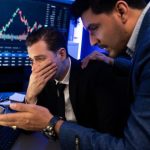
While stock market trading has historically been the go to pastime for aspiring investors, investing in currency is now far more popular.
In fact, the average daily activity in the forex market is more than double that of the stock market, with this amounting to well in excess of $6.6 trillion across the globe.
This is just one way in which the forex market has evolved and grown during the past decade, with most changes having been driven by technological advancement. Here are some of the most significant developments.
The Rise of Mobile Trading
The rise of online and mobile activity has certainly been pronounced in the digital age, with this having been driven largely by the emergence of virtual brokerage sites.
This has certainly eliminated many of the barriers to entry that once surrounded the forex market, enabling part-time and aspiring investors to access real-time trading and a wide range of technical indicators.
The recent emergence of online platforms such as the MetaTrader 4 has been particularly influential, especially when you consider the 24-hour nature of forex trading and the fact that the market is split into three distinct geographical sessions with different time zones (namely North America, Europe and the Asia Pacific region).
Mobile platforms are also well-suited to the volatility of the foreign exchange, as they allow investors to capitalise on the numerous price shifts that occur each and every day.
Increased Automation and High-Frequency Trading (HFT)
The rise of automation in the forex market has also been prominent of late, although this is a slightly more controversial change that has precipitated the emergence of high-frequency trading (HFT).
More specifically, both desktop and mobile platforms now offer software that underpins algorithmic trading, which are capable of facilitating a huge volume of orders within a relatively short period of time.
This continues to replace human trading and interaction across the globe, eliminating the risk of emotive trading and knee-jerk reactions to losses.
The controversy is caused by the fact that HFT can cause undue volatility in an already uncertain and changeable marketplace, while it also raises the prospect of market manipulation by wealthy and institutional traders.
The Age of Heightened Regulations
Over time, the forex market has proved incredibly hard to regulate, not least because of its global nature and the sheer size of the space.
This has precipitated a rise in the number of rogue and unlicensed brokers online, however, and the good news is that nations are beginning to take more proactive steps towards regulating the forex market.
In the UK, for example, all brokerage sites must be fully licensed and regulated by the FCA (Financial Conduct Authority), while operators must also commit to providing regular reports and audits as part of their official licensing agreement.
Even basic regulatory requirements such as this do much to protect investors, while helping to maintain stability and minimise the risk of fraud.












